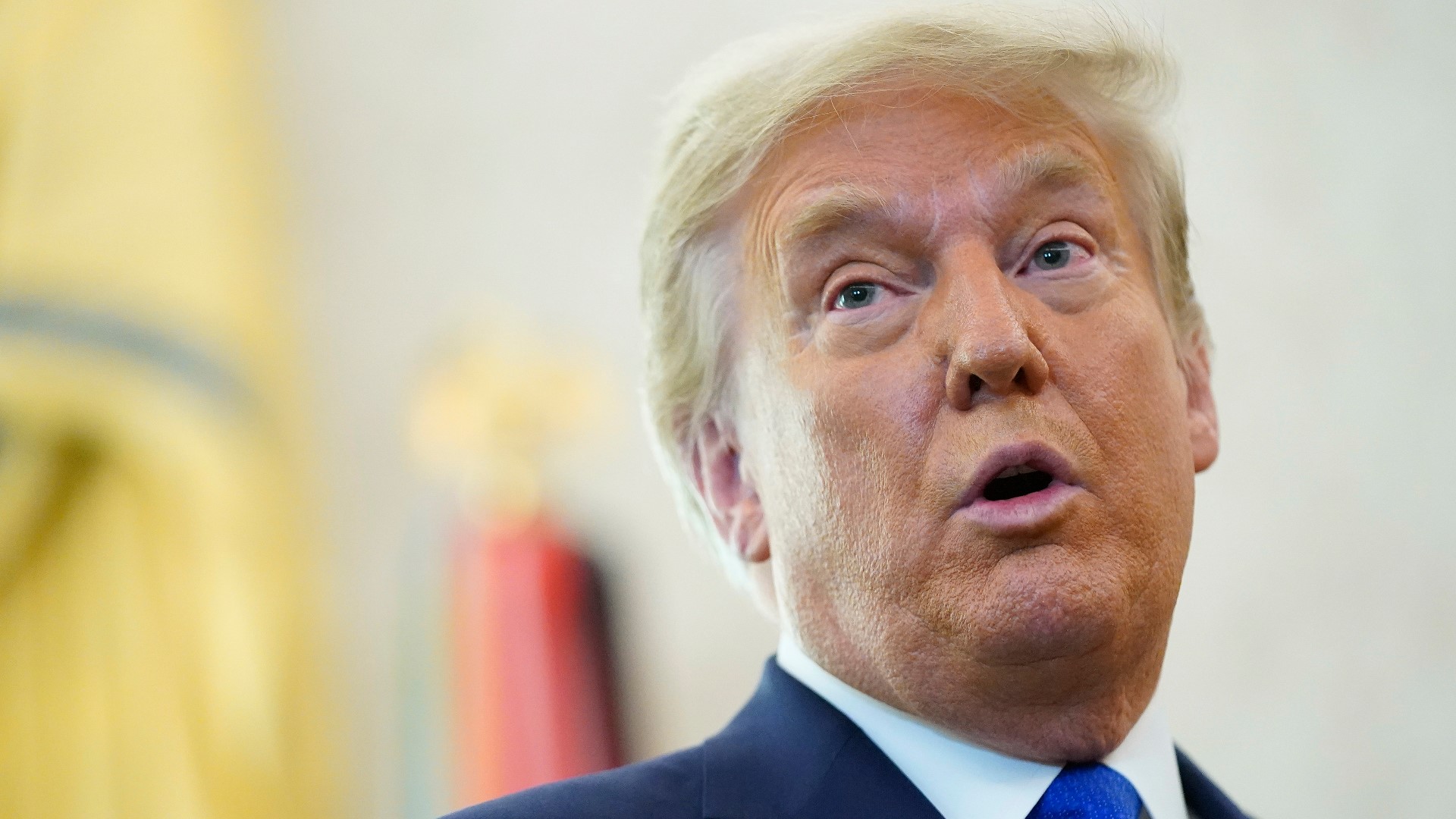WASHINGTON — QUESTION:
Can President Trump pardon all of those who were involved in the chaos and riots that hit the U.S. Capitol building on January 6?
ANSWER:
Yes, President Trump can pardon the entire mob that stormed the U.S. Capitol. r
OUR SOURCES:
- The United States Constitution
- Congressional Research Service Reports
- Norman Eisen, a former Ambassador and Senior Fellow at the Brookings Institution
- Frank Bowman, a Legal Historian and University of Missouri Law Professor
- Jon Sheldon, a Criminal Defense Lawyer
- Dan Kobil, a Capital University Law Professor.
WHAT WE FOUND:
After the stunning scene of insurrection at the U.S. Capitol Wednesday, countless leaders are calling for accountability.
District of Columbia Mayor Muriel Bowser held a press conference Thursday, asking for the public’s help to identify members of the mob that stormed the Capitol, to help law enforcement hold them accountable.
President Trump’s message to those insurrectionists has been different. In a video message recorded during the siege, President Trump told the group, “So go home. We love you. You are very special.”
Some are asking if a wide-reaching presidential pardon is possible.
Article II, Section 2 of the U.S. Constitution lays out the scope of the Presidential Pardon. It authorizes the President “to grant Reprieves and Pardons for Offenses against the United States, except in Cases of Impeachment.”
Experts agree it’s one of the broadest constitutional powers, and in the case of Wednesday’s siege of the Capitol, President Trump could pardon the entire mob.
“He can pardon either individual members or groups of people for any federal offense, period, full stop,” Professor Frank Bowman said. “From jaywalking on a federal street to treason.”
Capital University law professor Dan Kobil agreed with Bowman, saying there really aren't restrictions to his authority when it comes to federal offenses.
“The President has the authority to pardon any person who violated any federal laws on that date,” Kobil said. “He could even pardon the bomb-makers.”
The president could even pardon mob members before they’re identified or arrested.
A report on presidential pardons from the Congressional Research Service clarifies that “a pardon may be granted at any time prior to charge, prior to conviction, or following conviction.”
“As long as he defines the group in the pardon document reasonably well so that it includes somebody who later wants to take advantage of it, he can do that,” Professor Bowman explained.
Presidents have pardoned groups before. President Andrew Johnson granted amnesty to Confederate soldiers after the Civil War. President Jimmy Carter did the same for draft dodgers after the Vietnam War.
Norman Eisen, a Senior Fellow at the Brookings Institution says there’s nothing to stop President Trump from doing the same.
“I think there would be those who would argue to the court that this is too broad and sweeping of a pardon, but my own judgment is that that that would likely survive,” Eisen said. “But it is far from clear that he could give a complete immunity bath to everybody involved in this terrible event.”
Eisen says this type of pardon would require careful legal drafting. And even if the President pardons the mob, individuals could still be prosecuted by states for violating laws before arriving in D.C.
“In each of those states there are criminal conspiracy statutes,” he said. “If the crime was planned, if there was an overt act, if there was wrongdoing, if a pipe bomb was made in those states and carried to D.C.”
Attorney Jon Sheldon agreed, adding that some of Wednesday’s curfew violations happened in Arlington, VA.
“Most of the planning happened while in various of the 50 states and not D.C.,” Sheldon said. “A president has no power to forgive (pardon) state crimes.”
If President Trump does issue a pardon, federal prosecutors could challenge it by bringing federal charges against the insurrectionists anyway. But our experts say it’s unlikely to succeed.
“As long as the pardon is properly drawn and delineates the group of people that he intends to pardon that it's an offense that happened in the past, I think that challenge is almost certainly going to fail,” Professor Bowman said.
“The courts would be highly unlikely to invalidate a pardon, even such a controversial one,” Professor Kobil said. “The framers at the Constitutional Convention in Philadelphia considered barring the president from issuing pardons in cases of treason, as many states currently do, but they rejected such an amendment.”
CONCLUSION:
Yes, the President could pardon the entire insurrectionist mob for any federal crimes committed at the Capitol, though states could still press charges and federal prosecutors could challenge the pardon. How this all could play out is much more complicated.

